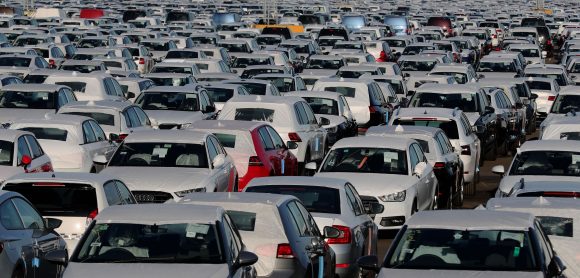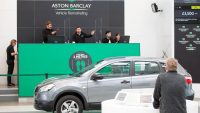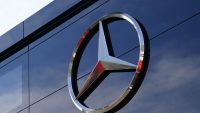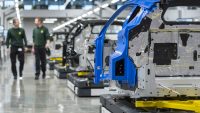What will happen to used car prices when the lockdown eases and car dealers get back to work is the million dollar question on everybody’s lips.
With most dealers doing very little business just a trickle of data is emerging to give the motor trade any idea of what used car prices are doing.
With the main indicators that determine price – auction houses – mostly closed and dealerships up and down the country shut and staff furloughed, there is little to base average prices on.
Effectively the market is on pause – but does that mean prices are too?
Currently every car dealer in the land will be staring at their balance sheets and the stock that’s on it wondering whether they’ll be taking a bath on a dramatic price drop in the not too distant future.
Traders have told Car Dealer Magazine they are already receiving stupid offers from cheeky customers looking to take advantage of what they think will be a serious adjustment in used car prices.
And with stories like the 18-plate McLaren 720S, that lost more than half its original price in an online auction, this week circulating on social media the cheeky offers are likely to intensify.
But dealers are hoping counterparts in the trade hold their nerve.
The big fear is when the economy starts to open up again, returning car dealers who have faced weeks of little to no revenue, will start liquidating stock in an attempt to get cash back in the bank.
One independent dealer told Car Dealer Magazine: ‘We are desperate to get going again. We have sold a few cars online, but the cheeky offers from customers have started to flood in. They all think we are desperate to sell.
‘It only takes a few desperate dealers to start accepting those 25 per cent and under offers for the whole house of cards to fall.’
And it is this sort of distress selling that could see prices tumbling and cause an even bigger shock for the motor trade.
Future values on PCPs would be misaligned with customers in negative equity hurting the future new market, not to mention the pain of wiping hundreds of thousands of pounds off the balance sheets of the group’s with big used stock.
Daksh Gupta, Marshall’s CEO, told Car Dealer: ‘People need to think of this hibernation period merely as a pause.
‘Why are we talking the job down in terms of a crash? I could also make a strong case for values going up as new car supply is going to be limited given factory closures. We saw this in 2018 due to new car shortages as a result of WLTP.
‘Retailers need to be patient not panic.’
Phill Jones, managing director of eBay Motors Group agreed these were ‘unprecedented circumstances’ for car dealers.
He told us: ‘The usual approach of discounting cars as they age on the forecourt is no longer appropriate. Frankly, price is unlikely to be the main reason why a car hasn’t been selling.
‘Post lockdown there will be some interesting dynamics with the potential of high returns from 2017’s record new car sales, pent up demand and the sad reality that a number of dealerships may need to liquidate stock.
‘Selling cars is a precarious mix of supply and demand, so our advice is to closely monitor data and be quick to respond.’
Gupta doesn’t believe prices will tumble.
He added: ‘I don’t believe prices will come crashing down. This is because ultimately residual values are determined by supply and demand which drives market data that dictates that movements downwards as well as upwards.
‘There is very limited demand right now and supply is not out there either, as a result there is no market data which is why CAP and Glasses are not altering values.’
With few transactions taking place, the ability to get any sort of data, as Gupta points out, is proving tough.
This is coupled with few experts around to help crunch the numbers, many of whom are either furloughed or their businesses simply do not have the ability to provide prices.
Cazana’s director of insight Rupert Pontin said: ‘There has been much discussion about whether pricing has been moving since lockdown and both CAP and Glass’s are no longer in a position to comment, or to alter values, given their primary data source is from the auction and wholesale environment.’
Andy Shields, global business director of INDICATA – a business intelligence and market insights specialist that operates in 13 countries – has a unique insight into used car markets across the world.
He said: ‘When the market finally opens, any dealer rushing to an auction and buying swathes of cars will be a rare sight. There is enough dealer stock to sell before the trade becomes brave again.
‘Equally the leasing, rental and OEMs have enough backlog of current and near term de-fleets to keep the auction house compounds full.
‘This imbalance will stay until someone blinks. Most likely this will be the vendors with financial pressure to sell.’
And that’s the fear.
The coronavirus pandemic has caused huge strain on dealers of all shapes and sizes. Many are chomping through cash reserves at an alarming rate, while others are desperately borrowing money to stay afloat.
When dealers return to showrooms, the temptation to put cash back in the bank could be too much.
Sean Kelly, MD of Vines BMW, told Car Dealer Live on Monday that he was confident dealers will hold their nerve.
He said: ‘Nobody is going to win if the minute the doors reopen we start cutting and slashing all the prices.
‘I am confident, though, in what I have seen in the last few weeks that dealers are prepared to hold their nerve so when the doors reopen it is better for all of us.
‘I know that is a really difficult thing to do when you have stock wedged in the balance sheet and it is aging, but that would be my plea to everyone – hold your nerve and let’s try and sell through the stock that we have got rather than just liquidate it.’
Jamie Caple, of independent dealer Car Quay, said he thinks prices will go up.
He told us: ‘I’m confident prices won’t just hold I think they’ll go north fairly sharpish once lockdown ends.
‘Of course there will be some garages looking to generate cash quickly plus some feeling the pressures of stocking facilities who’ll want to bail out but by-and-large prices will be strong.
‘The last thing we need to do as an industry is panic, I think it’s going to be difficult to buy stock once lockdown is over so what’s the point everyone undercutting each other to then find out we can’t replace what we’ve just sold. Selling tenners for fivers and then having to pay tenners for fivers makes absolutely zero sense. Hold tight.’
However, Andrew Banning, a used car business development consultant, thinks many dealers haven’t seen the drastic drop in demand that could be coming further down the line, as consumers tighten their belts and many lose their jobs.
He said: ‘Some dealers will have no other option other than to be cheapest, if their need for liquidity means their business will fail without the oxygen of cash flow.’
INDICATA data from across Europe shows there is a distinct correlation between the strength of a country’s lockdown and the reduction in their used car market.
Even in Sweden, the least affected locked down market, the used car trade is running at 80 per cent of normal levels. Worryingly, it is here where used car prices have dropped the most – four per cent since February.
That points to price falls to be expected when markets do re-open as redundancies and cut-backs mean there will be less customers to buy used cars and those that do simply won’t have as much money to spend.
Back at Cazana, Pontin thinks there could be some short-term supply issues when the lockdown eases as the industry’s great cogs begin to spool up again.
He said: ‘Transporters are out of place and stock is still with vendors and in some cases yet to be de-fleeted properly from customers. Putting these processes back in place is expected to take between three to five weeks.
‘As such it is likely that a shortage of stock will allow retail prices to move upwards and the wholesale market will also be more expensive as buyers seek to replenish forecourts.’
IDICATA says its research has found prices across Europe have dropped between five and 10 per cent on average.
Shields added: ‘When the UK re-opens, but while remaining in a state of partial lockdown, there is no reason to perceive volumes will return anywhere near to normal levels. For price, the key factor will be how supply and demand balances out.’
He warns that when the lockdown does ease there could be dealers who fall into two camps – those who are optimistic and willing to hold their nerve, and those who take a more pessimistic view and attempt to ‘save their skin’ and slash prices.
Pontin is hopeful pent up demand will play into dealers’ hands, though.
He said: ‘Dealers should be aware that post lockdown is an opportunity waiting to happen. A level of pent up consumer demand will come to the market and sales will probably pick up quite swiftly.
‘Retail customers have not been able to spend as much money while on lockdown and even those that have been furloughed may have saved money and also have the comfort of job security.
‘With wholesale stock shortages likely the temptation to sell cars cheaply should be avoided as replacing them will be a costly exercise for some weeks.’
Every day the industry remains in lockdown, the potential for dealers needing to cut prices and sell quickly when they get back intensifies. All eyes, then, will be on Boris Johnson and his team’s plan to slowly ease restrictions.
May 9 Investigation: Is now a good time to buy a used car and what will happen to used car prices? Everything we know so far on used cars
- Join our WhatsApp group to get updates sent straight to your phone. Email us via the website here to get a link to join.
Investigation: German dealers suffer from collapsed car buyer demand as they head back to work
Investigation: Will fear of public transport fuel a surge in new and used car demand?



































